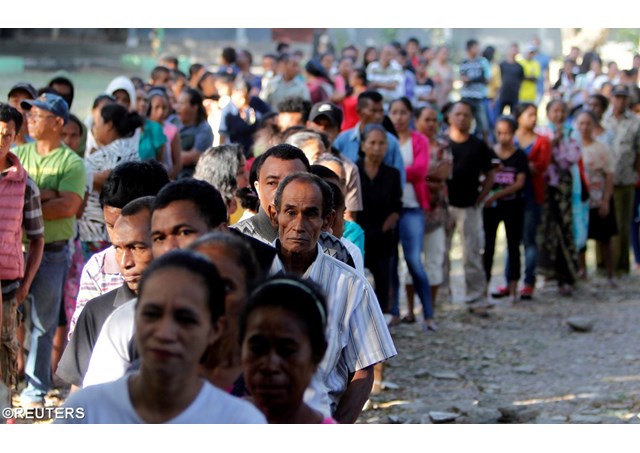
Timorese bishop urges voters to elect leaders who will deliver

(Vatican Radio) People in Timor-Leste or East Timor, Asia's most Cathollic nation, cast their vote on Saturday to elect a government that can alleviate poverty, healthcare and education issues that have stalled the tiny nation's progress.
Ahead of the elections, the country’s prominent Catholic Church leader urged his countrymen to choose those who will deliver on the basic needs of the people. "Choose whom you think can side with the people, who can improve health, sanitation, education, agriculture, as well as provide clean water," Bishop Basilio do Nascimiento of Baucau, chairman of the Timor-Leste Bishops Conference, said in Dili. "Don't choose whom you believe only give empty promises during campaigns. Vote for the ones who have honest views about society," he said.
Asia's most Catholic nation
More than 700,000 East Timorese were registered to vote in the impoverished country 1.2 million population that is over 95% Catholic. Twenty-one political parties are vying for 65 parliamentary seats amid widespread concern over successive government's failure to use the wealth generated by oil and gas sales to support development and create jobs.
The July 22 parliamentary election was to determine the next prime minister, following a presidential election in March which saw former resistance fighter Francisco 'Lu-Olo' Guterres become head of state. Former president and prime minister Xanana Kayrala Gusmao's CNRT (National Congress for Timorese Reconstruction) party remained the front runner, with Gusmao saying he will seek another term as premier if the party wins. The present government is a coalition between CNRT and Fretilin led by Fretilin's Rui Maria de Araujo. The official results of the election is expected to be announced by Aug. 6, although preliminary results should come much earlier.
Asia's youngest nation
Timor-Leste, a former Portuguese colony, was invaded by neighbouring Indonesia in 1975. An often violent 24-year resistance movement took Timor-Leste to independence in 2002 and many of its key figures still feature prominently in running the country. Both the presidential and parliamentary elections are the first since the United Nations ended its peacekeeping operations at the end of 2012.
| All the contents on this site are copyrighted ©. |


